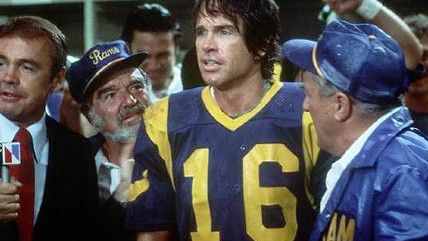LA Rams Should Pay Back Public Funds to Missouri, Sen. McCaskill Says
The Democratic lawmaker is drafting a bill requiring refunds from teams who skip town after accepting public financing.

Sen. Claire McCaskill (D-Mo.) is planning to

introduce legislation that would require sports franchises who have received public financing for their stadiums and other projects to pay back those funds if they "prematurely" relocate to another city.
The St. Louis Post-Dispatch reports that McCaskill, channeling the rage felt by many of her constituents in the Show-Me State over the NFL's decision to allow Rams owner Stan Kroenke to move his team from St. Louis to Los Angeles, wants to make sure the public is "treated fairly" if a team subsidized by taxpayer dollars decides to skip town before the bills are paid off, which is the case with the Rams.
As noted by Travis Waldron in The Huffington Post:
At the beginning of 2015, city and state taxpayers still owed more than $100 million in debt on the bonds used to finance the Edward Jones Dome, the stadium St. Louis put $280 million in public funds behind in 1995.
It isn't scheduled to pay off that debt until at least 2021, and that could be more difficult without the Rams and the $500,000 rent payment the team made each year. The city itself owes $5 million per year over that period, and the loss of the Rams could increase costs in the short-term.
McCaskill's proposal to protect the taxpayers' investment in a private enterprise is admirable, but far too little and way too late. She still seems to fail to grasp that this monster was created by the practice of government handouts to billionaire team owners, a practice she continued to support in the form of an additional $400 million of public subsidies for a new stadium to keep the Rams in St. Louis.
Waldron details some of the loophole-riddled chicanery that brought the Rams to St. Louis in the first place, when they absconded from Los Angeles at the end of the 1994 season.
The manner in which the team left St. Louis underscored the way backstopping stadiums with taxpayer funds often benefits already wealthy owners instead of the public.
It was, after all, a curious provision in the lease deal that helped attract the Rams to St. Louis -- and ultimately allowed them to leave taxpayers footing a larger portion of the bill, without a football team to boot.
As part of the rental agreement the city and state signed with the Rams in 1995, the team could vacate the lease with a year's notice if the Edward Jones Dome lost its status as a "first-tier" NFL venue (that is, among the top eight NFL stadiums).
A rash of new stadiums across the league in the last two decades ensured that the dome no longer qualified, and Kroenke and the Rams indeed chose to trigger the option to get out of the lease at the beginning of 2015.
In an article published at Reason earlier today, Jared Mayer profiles "the varying ways that NFL owners shift the costs of new stadiums to local taxpayers" and points out that "the NFL does not need public funding to survive, and the argument that publicly funded stadiums 'pay for themselves' is an economic fantasy."
Indeed, Kroenke wanted out of St. Louis so badly and sees so much greater financial opportunity in Los Angeles that he rejected the McCaskill-endorsed offer of hundreds of millions in additional Missouri taxpayer funds, choosing instead to build his own $2 billion stadium in Inglewood, CA almost entirely out of his own pocket.
The benefits of a sports franchise to a community are largely illusory, but politicians are all too happy to credit themselves with "saving" the home team by any means necessary. On that topic, Mayer writes:
Even in the face of substantial public costs that are not covered by the few associated tourism benefits, no mayor or governor who wants to win reelection would let a team leave. Crazed fans refuse to consider the costs (if you want to watch an irate fan screaming at a mayor who questioned if a stadium subsidy was worth the cost, check out this video) and public officials are also embroiled in bidding wars for teams whose owners are all too happy to take advantage of generous taxpayer subsidies.
For more Reason coverage on the crony capitalist quagmire of publicly-financed sports stadiums, go here. And check out Reason TV's "Top 5 NFL Hits to Taxpayers" below.


Show Comments (42)